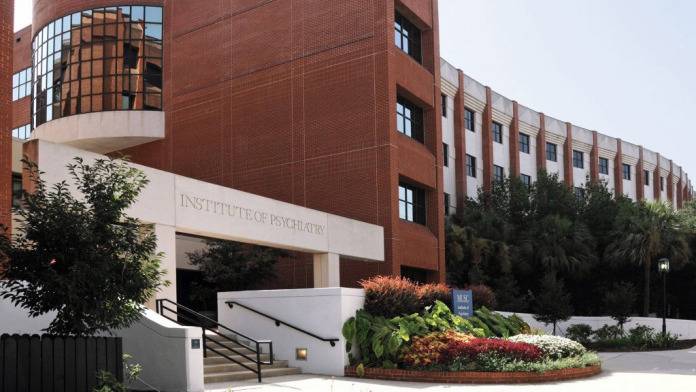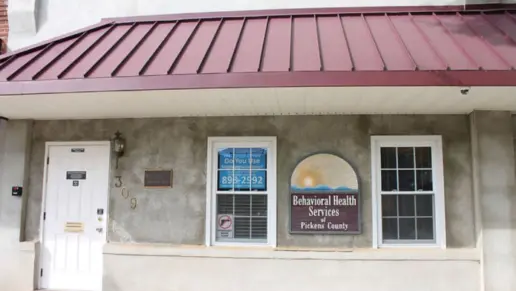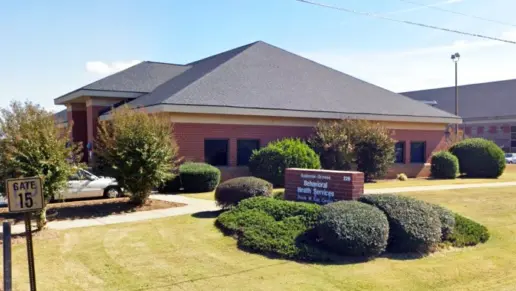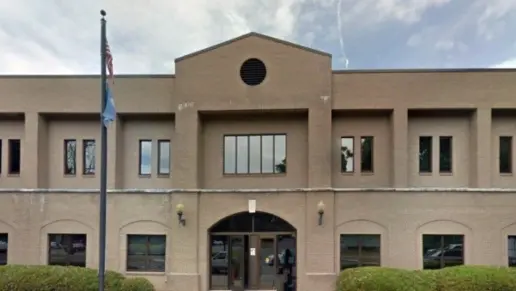About MUSC Health Institute of Psychiatry
The MAT program provides FDA-approved medications in combination with mental health counseling to address the mental, emotional, and physical aspects of addiction and recovery. The medication helps manage cravings and reduce the risk of relapse while clients lay a solid foundation for long-term recovery.
The inpatient program provides a way to focus on recovery without the interruptions of daily life. Services may include individual and group therapy, medication management, addiction education, life-skills training, and relapse prevention. Approaches include cognitive behavioral therapy (CBT), motivational interviewing (MI), and other evidence-based methods.
The intensive outpatient program meets for nine hours per week, and general outpatient care meets for one to three hours per week. Services are similar to the inpatient program.
MUSC Health Institute of Psychiatry may accept a wide range of insurance plans, such as Humana, Ambetter, Cigna, Anthem Blue Cross Blue Shield, United Healthcare, Aetna, and more. Because insurance plans vary, be sure to verify coverage information and out of network details with the insurer.
 Payment Options
Payment Options
Private Insurance
Self-pay options
Financial aid
Medicare
Medicaid
Medicare
Military Insurance
 Levels of Care
Levels of Care
 Outpatient
Outpatient
Outpatient Programs (OP) are for those seeking mental rehab or drug rehab, but who also stay at home every night. The main difference between outpatient treatment (OP) and intensive outpatient treatment (IOP) lies in the amount of hours the patient spends at the facility. Most of the time an outpatient program is designed for someone who has completed an inpatient stay and is looking to continue their growth in recovery. Outpatient is not meant to be the starting point, it is commonly referred to as aftercare.
 Inpatient
Inpatient
 Intensive Outpatient
Intensive Outpatient
Intensive Outpatient programs are for those who want or need a very structured treatment program but who also wish to live at home and continue with certain responsibilities (such as work or school). IOP substance abuse treatment programs vary in duration and intensity, and certain outpatient rehab centers will offer individualized treatment programs. The Intensive Outpatient Program gives patients the chance to participate in a structured treatment plan part-time while they transition back to home and work or other responsibilities.
 24-Hour Clinical Care
24-Hour Clinical Care
24-hour clinical care in South Carolina is designed to protect those in recovery from health risks of withdrawal. For example, opioid withdrawal can cause vomiting and diarrhea that results in a life-threatening level of dehydration. Withdrawal from benzodiazepines can cause seizures which can be fatal. To avoid these risks, supervised medical detox is recommended. Under this care, medical professionals constantly monitor patients to ensure a safe detox process.
 Medically Assisted Detox
Medically Assisted Detox
Withdrawing from addictive substances, like alcohol, benzodiazepines (like Xanax), or opioids, occurs during the detox process. Since this process can have uncomfortable and even dangerous side effects, the mission of a medically assisted detox is to provide an expert medical team to help monitor your health around the clock. They will work to keep you as safe and comfortable as possible, administering necessary medications to alleviate any withdrawal symptoms.
 Programs
Programs
 Adolescence program
Adolescence program
 Adult program
Adult program
 Program for men
Program for men
 Program for women
Program for women
 Young adult program
Young adult program
 Military program
Military program
 Settings & Amenities
Settings & Amenities
-
Private transportation
-
Residential setting
-
Private rooms
 Insurance
Insurance
Our Policy: MUSC Health Institute of Psychiatry works with several private insurance providers and also accepts private payments when possible, please contact us to verify your specific insurance provider.












 Clinical Services
Clinical Services
 Cognitive Behavioral Therapy
Cognitive Behavioral Therapy
The main basis of cognitive behavioral therapy in South Carolina is that all your thoughts, feelings, and behaviors are interconnected. Therefore, the therapist will help you change your thoughts, which will lead to different emotions and actions.
 Dialectical Behavior Therapy
Dialectical Behavior Therapy
If you struggle with managing your emotions, dialectical behavior therapy in South Carolina might be a good method of treatment for you. This form of talk therapy helps you learn to accept yourself while working on changing unhealthy patterns of thoughts and reactions.
 Group Therapy
Group Therapy
Group therapy participants in South Carolina learn practical conflict resolution skills they can practice within the group. These skills are essential for improving your relationships and reducing stress outside rehabilitation. Both of these factors are crucial to help maintain your recovery.
 Individual Therapy
Individual Therapy
Men and women in South Carolina undergoing individual therapy work closely with their therapist to address the personal challenges and lifestyle changes that can help address addiction triggers. You have a unique situation and your therapist will spend time helping you develop healthy coping strategies so you can work toward achieving and maintaining sobriety.
 Trauma Therapy
Trauma Therapy
The overall goal of trauma therapy is to address and reduce the lingering physical and emotional effects that trauma has had on your life. You work within a safe space with an experienced therapist to understand your responses and develop healthier coping mechanisms.
 Couples Therapy
Couples Therapy
During couples therapy in South Carolina, a licensed therapist offers techniques for how both partners can resolve conflict and manage challenges in the relationship. The couple may also engage in individual or family therapy for further support.
 Family Therapy
Family Therapy
The goal of all family therapy sessions is to support their loved one's recovery effectively by learning new and healthy communication skills as well as ways of managing stress and resolving conflicts. This helps improve interactions and addresses underlying issues within the family that often influence recovery.



